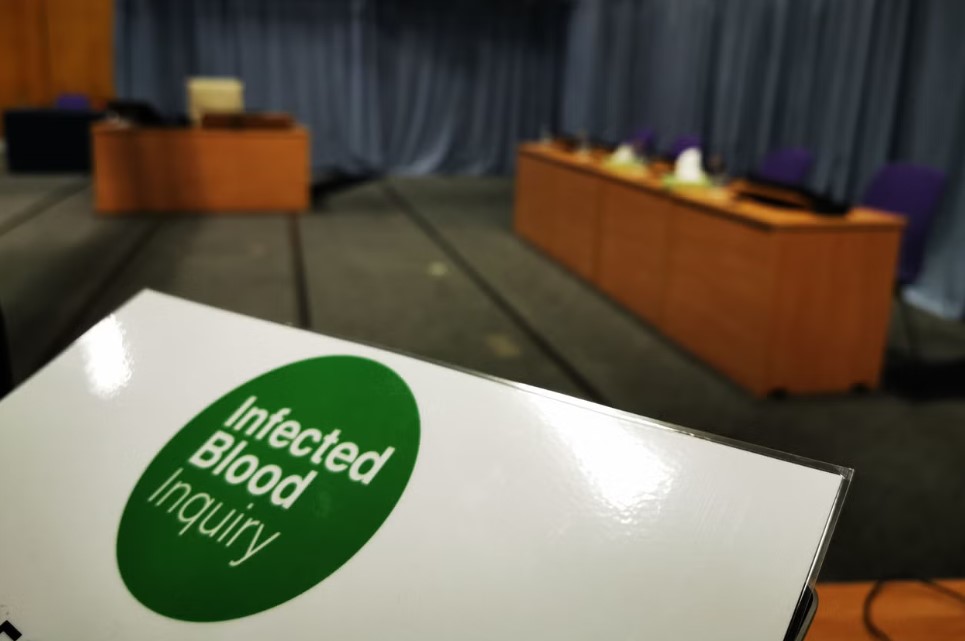
The Infected Blood Inquiry was established to examine the circumstances in which men, women and children treated by the NHS between 1970 and early 1990s were given infected blood and infected blood products.
What is UK Infected Blood Inquiry?
The UK Infected Blood Inquiry was established in 2017 to investigate the contaminated blood scandal, which focuses on the period between the 1970s and the early 1990s when patients receiving treatments from the NHS were inadvertently given blood and blood products containing HIV, Hepatitis C and Hepatitis B. More than 30,000 individuals in the UK were affected by these treatments, resulting in over 3,000 deaths (Expert Report to the Infected Blood Inquiry: Statistics).
Chaired by Sir Brian Langstaff, the inquiry seeks to investigate the circumstances in which infected blood and blood products were given to patients, consider the impact and offer recommendations for compensation to those who received infected blood as well as those affected. Most recent findings of the inquiry are due to be published on the 20th May 2024.
For more information and to access previous reports, visit infectedbloodinquiry.org.uk.
Cases in Scotland
According to The Scottish Infected Blood Forum, nearly 3,000 people in Scotland alone have been infected due to contaminated NHS blood and blood products. This was addressed by the earlier Penrose Inquiry, which focused primarily on the contamination of blood and blood products in Scotland from 1970 to 1991.
As a result of the Penrose Inquiry, it was recommended that everyone in Scotland who had a blood transfusion before September 1991 should be offered a Hepatitis C test if they have not already been tested.
For the full Penrose Inquiry Recommendations, visit www.gov.scot/publications/penrose-inquiry-recommendation.
Any patients in Scotland who had a blood transfusion before September 1996 should consider taking a Hepatitis C test if they have not already been tested. You can speak to your GP practice or your local BBV service about getting tested, or you can book a test with us if you live in Glasgow or Lanarkshire.
However, if you had a transfusion after September 1996, the risk of contracting Hepatitis C is extremely small, so you do not need to be tested for Hepatitis C unless you are concerned about other risk factors or symptoms.
The number of blood transfusion recipients in Scotland who may have Hepatitis C and are unaware of it is extremely low.
Considerable work has previously been undertaken in Scotland to identify anyone who may have been infected with hepatitis C via blood transfusions. This includes a look-back exercise in 1995 and public awareness campaigns (including following the Penrose Inquiry in 2015) encouraging anyone who may have been exposed through this route to be tested.
In addition, numerous initiatives stemming from Scotland’s hepatitis C action plans and Sexual Health and Blood Borne Virus policies have consistently promoted hepatitis C case finding among individuals with risk factors, including blood transfusion recipients.
The vast majority of people in this category should already have been tested and we expect that very few individuals in this group remain undiagnosed.
However, if you have not had a Hepatitis C test and you think you had a transfusion prior to September 1996, it is not too late to be tested. Patients can be reassured that risks of any individual blood donation being infected were low and the great majority of previously untested patients may expect the reassurance of a negative test.
Information about Hepatitis C is available on the NHS Inform website at Hepatitis C | NHS inform.
If you have any concerns or need support, you can speak to your GP or contact us here.
Looking for support?
If you are living with HIV, hepatitis C, or hepatitis B, or if you have been affected by any of the issues discussed on this page, we are here to help. Please reach out to us by filling out our contact form.




